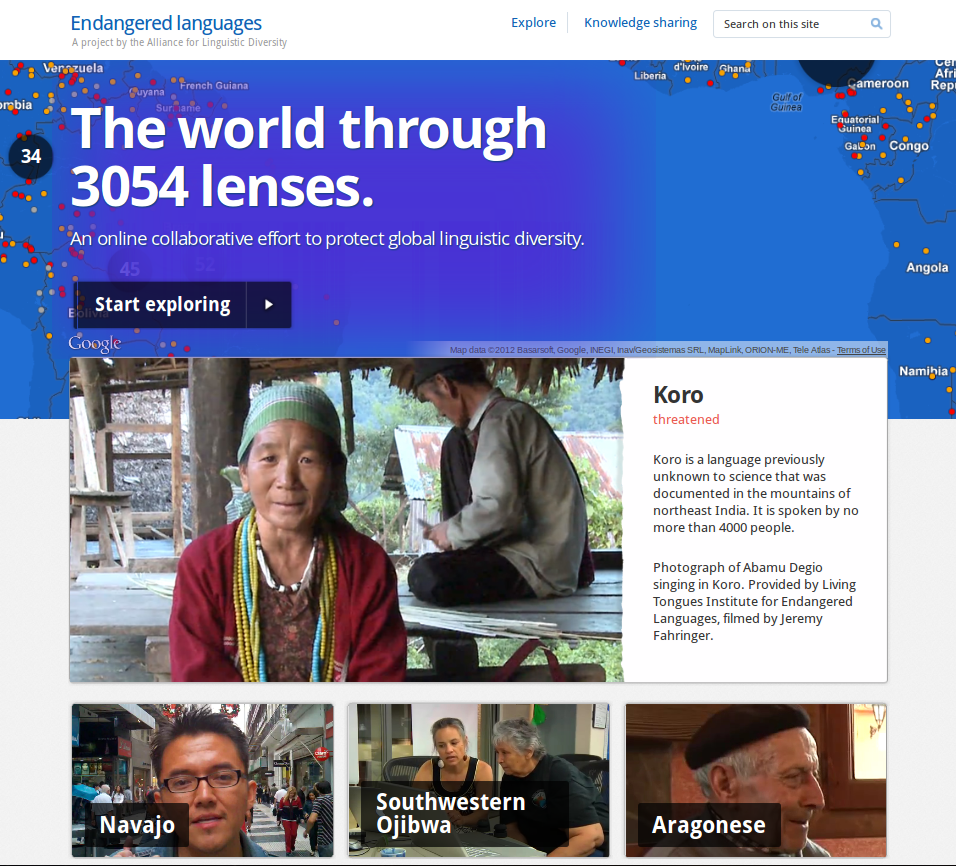
Share and Learn about Languages on the Brink of Extinction
EndangeredLanguages.com is an online project to provide a way for speakers of endangered languages to share about and upload samples of their languages.
It's a beautiful website, and has an intuitive interface for exploring the many languages on the brink of disappearing forever.
If you're a speaker of an endangered language, you can provide content that will help to keep a part of the language "alive" online, even after there are no speakers left.
Both a sad and inspiring project as well as an easy way to share and learn.
About EndangeredLanguages.com
The Endangered Languages Project, is an online resource to record, access, and share samples of and research on endangered languages, as well as to share advice and best practices for those working to document or strengthen languages under threat.
Humanity today is facing a massive extinction: languages are disappearing at an unprecedented pace. And when that happens, a unique vision of the world is lost. With every language that dies we lose an enormous cultural heritage; the understanding of how humans relate to the world around us; scientific, medical and botanical knowledge; and most importantly, we lose the expression of communities’ humor, love and life. In short, we lose the testimony of centuries of life.
Languages are entities that are alive and in constant flux, and their extinction is not new; however, the pace at which languages are disappearing today has no precedent and is alarming. About half of the world’s approximate 7,000 languages are at risk of disappearing in the next 100 years. But today we have tools and technology at our fingertips that could become a game changer.
With the Endangered Languages Project, Google puts its technology at the service of the organizations and individuals working to confront the language endangerment by documenting, preserving and teaching them. Through this website, users can not only access the most up to date and comprehensive information on endangered languages as well as samples being provided by partners, but also play an active role in putting their languages online by submitting information or samples in the form of text, audio or video files. In addition, users will be able to share best practices and case studies through a knowledge sharing section and through joining relevant Google Groups.
Google oversaw the development and launch of this project, but the long term goal is for it to be led by true experts in the field of language preservation. As such, oversight of the project will soon transition to First Peoples' Cultural Council and The Institute for Language Information and Technology (The Linguist List) at Eastern Michigan University in coordination with the Advisory Committee.